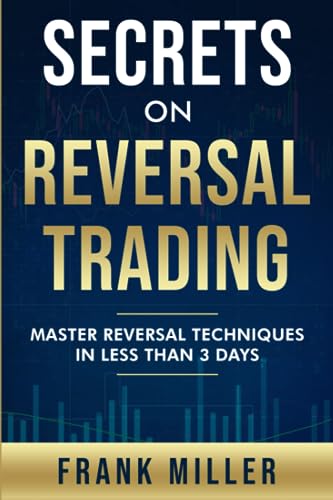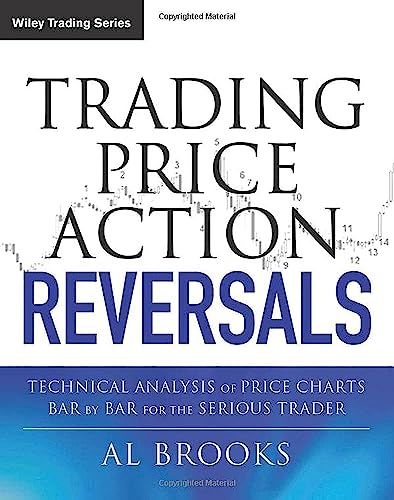- Miller, Frank (Author)
- English (Publication Language)
- 92 Pages - 11/01/2020 (Publication Date) - Independently published (Publisher)
Introduction
Reversal trading is a powerful strategy that can significantly boost your profit potential in the financial markets. By identifying trend reversals and capitalizing on them, traders can take advantage of lucrative opportunities to maximize their returns. In this article, we will explore the concept of reversal trading and provide valuable insights into how you can incorporate this strategy into your trading arsenal.
Understanding Reversal Trading
Reversal trading, also known as trend reversal trading, is a technique used by traders to identify potential changes in market direction. It involves spotting key reversal patterns or signals that indicate a shift in the prevailing trend. By recognizing these patterns early on, traders can position themselves to profit from the subsequent price movements.
The Importance of Reversal Trading
Reversal trading is crucial for traders who aim to capitalize on market reversals and take advantage of price fluctuations. By being able to identify trend reversals, traders can enter positions at the early stages of a new trend, maximizing their profit potential. This strategy allows traders to avoid entering trades late, when the trend has already matured, and the profit potential is reduced.
Common Reversal Patterns
There are several popular reversal patterns that traders often look for when implementing reversal trading strategies. Some of the commonly used patterns include:
1. Head and Shoulders: This pattern consists of three peaks, with the middle peak (the head) being higher than the other two (the shoulders). It indicates a potential trend reversal from bullish to bearish or vice versa.
2. Double Top/Bottom: This pattern occurs when the price reaches a resistance level twice (double top) or a support level twice (double bottom) before reversing its direction. It suggests a potential trend reversal.
3. Engulfing Candlestick: This pattern involves one candlestick completely engulfing the previous candlestick. It indicates a shift in market sentiment and suggests a potential reversal.
Implementing a Reversal Trading Strategy
To effectively implement a reversal trading strategy, traders should consider the following steps:
1. Identify potential reversal patterns: Utilize technical analysis tools and indicators to identify key reversal patterns in the market.
2. Confirm the reversal signal: Look for additional confirmation signals, such as volume spikes or trendline breaks, to validate the potential reversal.
3. Set entry and exit points: Determine precise entry and exit points based on the identified reversal pattern and market conditions.
4. Manage risk: Implement proper risk management techniques, such as setting stop-loss orders, to protect against potential losses.
5. Monitor and adjust: Continuously monitor the market and adjust your strategy as needed to adapt to changing market conditions.
Conclusion
Reversal trading is a valuable strategy that can significantly enhance your profit potential as a trader. By mastering the art of identifying trend reversals and implementing effective reversal trading strategies, you can position yourself to take advantage of lucrative opportunities in the financial markets. Remember to conduct thorough analysis, exercise patience, and manage your risk effectively to optimize your trading results. Start incorporating reversal trading into your trading approach and unlock the potential for greater profits!
- Miller, Frank (Author)
- English (Publication Language)
- 92 Pages - 11/01/2020 (Publication Date) - Independently published (Publisher)
- Hardcover Book
- Brooks, Al (Author)
- English (Publication Language)
- 576 Pages - 01/24/2012 (Publication Date) - Wiley (Publisher)
- Pecaut, Rayner (Author)
- English (Publication Language)
- 71 Pages - 08/04/2022 (Publication Date) - Independently published (Publisher)
- Baker, Elliot (Author)
- English (Publication Language)
- 74 Pages - 06/15/2023 (Publication Date) - Independently published (Publisher)




